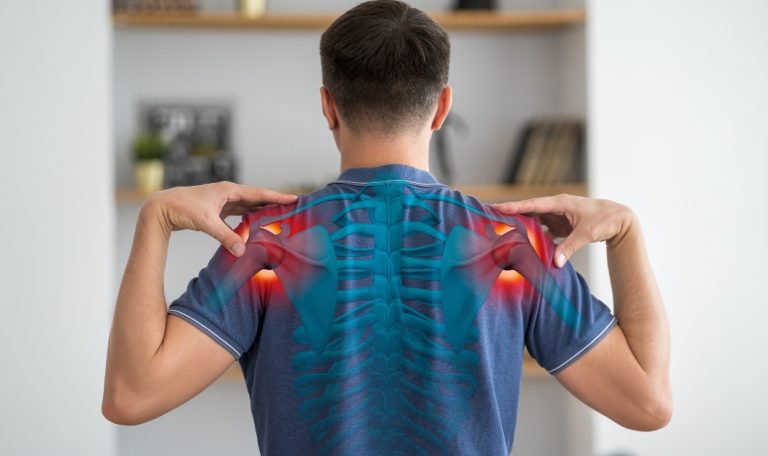AI in Orthopedics: Predict Surgical Result with Artificial Intelligence
Explore how AI helps predict results in orthopaedic surgery. Learn how it supports planning with the best doctor for knee replacement.

The intersection of artificial intelligence (AI) and orthopaedics is transforming how surgeries are planned, executed, and evaluated. As AI systems evolve, they offer orthopaedic surgeons a powerful tool for improving surgical outcomes, reducing complication risks, and enhancing patient recovery. From diagnosis and preoperative planning to postoperative care, AI is now a crucial part of modern orthopaedic practice.
In cities like Ahmedabad, patients increasingly rely on advanced technologies and seek advice from an orthopedic specialist in Ahmedabad to ensure precise treatment plans and faster recovery. This blog explores how AI plays a pivotal role in predicting surgical results in orthopaedics, particularly for knee and joint procedures.
Understanding the Role of AI in Orthopaedics
Artificial intelligence refers to the simulation of human intelligence by machines and software. In orthopaedics, AI systems analyse vast amounts of patient data, radiological images, and surgical outcomes to support decision-making and improve precision.
Key AI technologies used include:
- Machine learning algorithms that detect patterns in patient data to predict post-operative risks.
- Computer vision tools that analyse X-rays, CT scans, and MRIs for accurate diagnosis and treatment planning.
These technologies allow anorthopedic specialist in Ahmedabadto personalise surgical approaches based on predictive analytics, improving overall care.

How AI Predicts Surgical Results in Orthopaedics
AI models process a range of variables such as age, weight, joint condition, comorbidities, previous injuries, and imaging data to estimate how successful a surgical outcome may be. This predictive insight supports surgeons in selecting the best intervention strategies.
Heres how AI helps:
- Risk Stratification: Predicts potential complications such as infection, blood loss, or delayed healing.
- Optimised Implant Selection: Assists in selecting the right size, shape, and material of implants for procedures like knee or hip replacements.
- Recovery Forecasting: Helps estimate time for mobility restoration and guides physiotherapy plans.
Predictive tools ensure patients who consult the best doctor for knee replacement in Ahmedabad are given precise information about what to expect after surgery.
Applications of AI in Preoperative Planning
AI significantly enhances pre-surgical workflows by offering data-backed insights that guide clinical decisions. These applications include:
- 3D Modelling of Joint Structures: AI creates detailed anatomical models using imaging data, enabling personalised surgery.
- Simulation of Surgical Outcomes: Algorithms simulate different procedural approaches and show expected outcomes for each method.
- Patient-Specific Planning: AI enables tailored preoperative plans, reducing surgical time and improving accuracy.
These advancements assist every orthopedic specialist in Ahmedabad by reducing human error and providing patient-specific data during planning.
Real-Time Support During Surgery
Surgeons can receive real-time support from robotic platforms and AI-integrated surgical devices. Key technologies include:
- Robotic-assisted surgical arms that execute movements with extreme precision.
- Intraoperative imaging powered by AI to update the surgeon in real-time about alignment and progress.
- Augmented Reality (AR) overlays that highlight anatomical landmarks and guide cutting paths.
These tools help the best doctor for knee replacement in Ahmedabad make more precise bone cuts, better implant positioning, and reduced surgical trauma.
Postoperative Monitoring and Predictive Care
AI continues to add value even after surgery by helping clinicians track recovery, detect anomalies early, and adjust care strategies. Key features include:
- Wearable sensors that monitor range of motion, weight-bearing, and walking gait.
- Mobile apps powered by AI that gather patient feedback, pain scores, and activity levels.
- Predictive alerts that inform doctors about possible complications such as infection or implant loosening before symptoms appear.
Patients who are elderly or have chronic diseases that need more monitoring benefit most from this proactive care paradigm.
Advantages of AI in Orthopaedic Surgery
Integrating AI in orthopaedics offers numerous clinical and operational benefits, such as:
- Improved patient outcomes through precise surgical interventions and personalised recovery plans.
- Shorter hospital stays due to optimised care pathways and fewer complications.
- Enhanced decision-making using evidence-based predictive models.
- Better patient engagement through real-time data sharing and post-op apps.
When patients choose the best doctor for knee replacement in Ahmedabad, they are often guided through AI-assisted surgical planning that increases confidence and trust in the procedure.
Challenges and Ethical Considerations
Despite AI's enormous potential, a few problems still need to be fixed:
- Data privacy: Patient data used to train AI models must be protected under strict regulations.
- Algorithm bias: AI models must be trained on diverse datasets to avoid skewed predictions that affect accuracy.
- Over-reliance on automation: AI should assist but not replace clinical judgement.
- Technical limitations: AI systems require constant updates and validation from medical professionals.
Each orthopedic specialist in Ahmedabad must balance innovation with ethical responsibility, ensuring patients benefit without compromising safety or consent.
Future of AI in Orthopaedics
The future of orthopaedic surgery will rely heavily on integrated systems that combine imaging, diagnostics, surgical robotics, and wearable tech into a unified platform.
Emerging trends include:
- AI-based telemedicine platforms for pre and post-surgical consultations.
- Voice-assisted surgical systems that streamline intraoperative navigation and documentation.
- Digital twins of patients for virtual simulations of various treatment strategies before performing actual surgery.
These tools will enable patients and surgeons in Ahmedabad and beyond to experience more predictable and successful outcomes.
Use Case: Knee Replacement Surgery
Knee replacement is one of the most commonly performed orthopaedic procedures, and AI is making substantial contributions in this area. Here's how it works:
- AI evaluates patient gait, joint degeneration, and muscle strength before surgery.
- A digital surgical plan is created, which maps the exact placement of the implant.
- Robotic arms assist in making bone cuts, ensuring perfect alignment.
- Post-op sensors and apps monitor recovery, identifying any setbacks early.
This AI-driven process is particularly effective when guided by thebest doctor for knee replacement in Ahmedabad, ensuring optimal alignment, faster healing, and minimal revision rates.

How Patients Benefit from AI Integration
Patients can expect several improvements with AI-enhanced orthopaedic care:
- Personalised treatment paths tailored to unique health metrics
- Realistic expectations with data-based outcome predictions
- Informed decision-making with interactive visual simulations
- Continuous recovery monitoring without frequent clinic visits
This approach empowers patients to play a more active role in their healing process and leads to better long-term results.
Conclusion
Artificial intelligence is redefining how orthopaedic surgeries are performed, monitored, and evaluated. AI helps at every step of the surgical process, from preoperative planning and intraoperative accuracy to postoperative care and long-term monitoring. Patients looking for the orthopedic specialist in Ahmedabad or the best doctor for knee replacement in Ahmedabad now have access to smarter, data-driven, and safer treatment experiences. Dr. Mehta ensures each patient receives personalised care, reduced recovery times, and improved surgical outcomes.







































